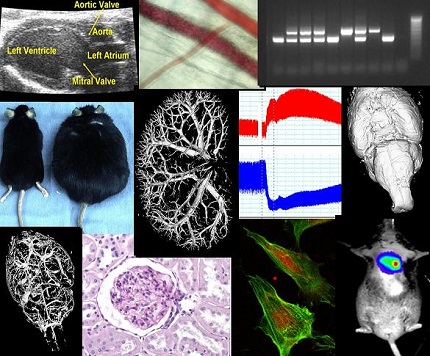Main ContentGraduate Research

With the explosion in technology for studying health and disease at the cellular, molecular and genetic levels, it is the task of the modern physiologist to integrate that information to understand function at the whole organism level. This integration brings into focus the multiple mechanisms that contribute to the myriad functions of the body in health and disease.
The Department of Physiology and Biophysics at UMMC has a long history of teaching and research excellence that is recognized nationally and internationally. Extramural funding for the department, primarily from the
National Institutes of Health (NIH) and the
American Heart Association (AHA), totals >$12,000,000/year. In addition to research, the faculty play leading roles in national and international service to organizations including the
American Physiological Society and the AHA among others.
The department's major research interests include:
- Pathogenesis of hypertension associated with obesity.
- Gender differences in hypertension and renal disease.
- Hypertension in pregnancy.
- Fetal programming of the cardiovascular disease in the adult.
- Inflammatory diseases.
- Mechanisms of target organ injury (kidneys and heart) in hypertension and heart failure.
- Neurohormonal mechanisms in blood pressure control.
- Mechanisms controlling blood vessel growth.
- Vascular endothelial function and mechanotransduction.
- Mathematical modeling of physiological functions.
Core facilities
In addition to the usual facilities for modern physiological studies, the department also has specialized core facilities: